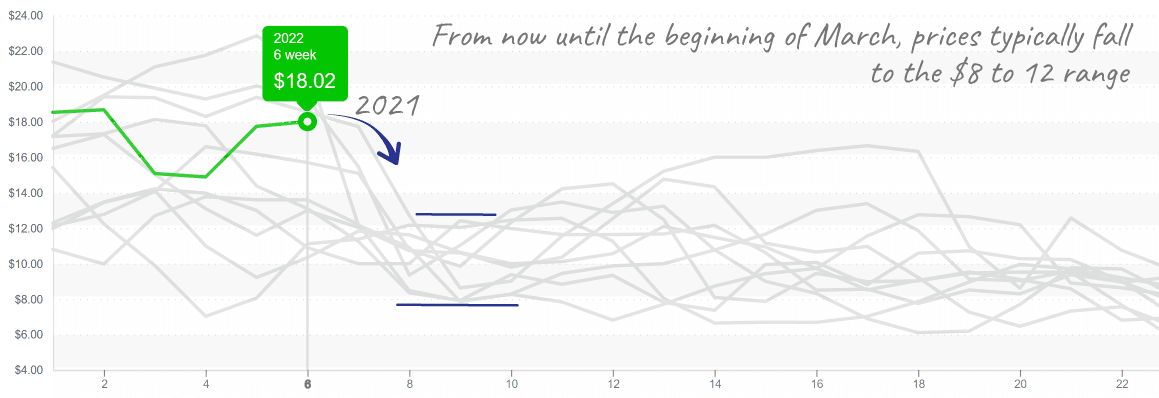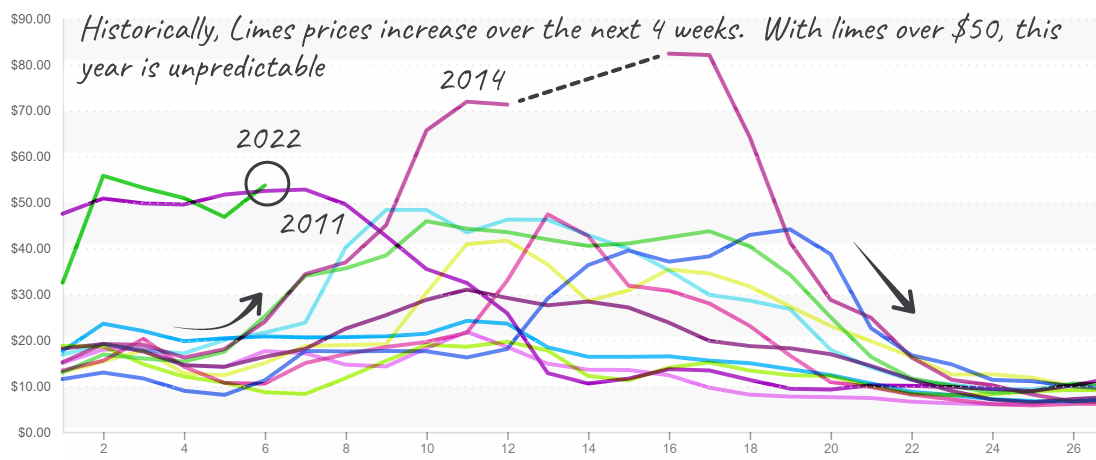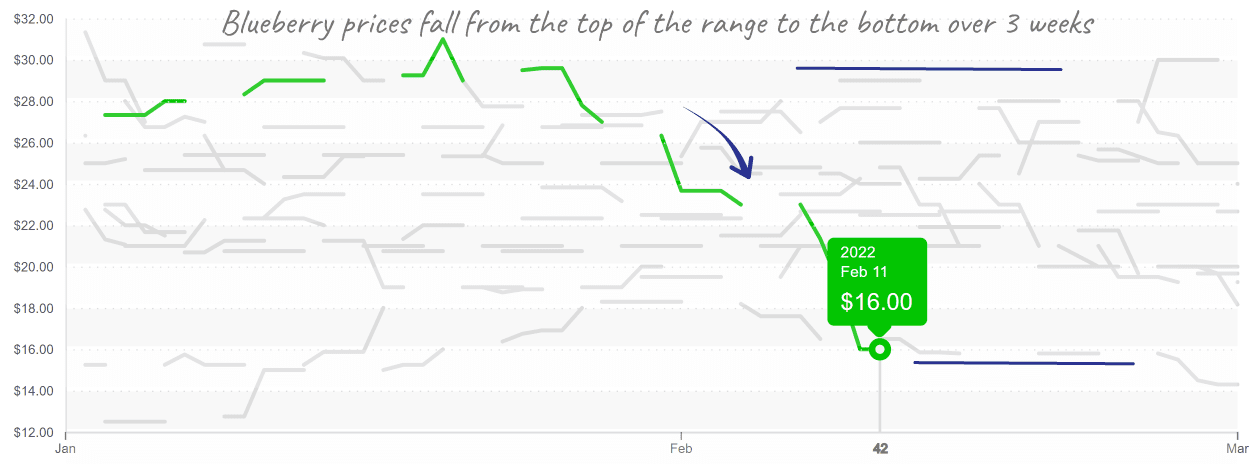Last weekend the U.S. government suspended the import of all Mexican avocados “until further notice” after a U.S. plant safety inspector in Mexico was sent a threatening message, which will have significant economic impact for this $3 billion industry at its peak time of year.
On a lighter note… for those who were wondering, something was a little off about this year’s Super Bowl. And no, it’s not because Tom Brady wasn’t passing for a ring. Instead, inconsiderate of produce buyers everywhere, the NFL decided to extend its regular season to 18 weeks, mushing together two produce-driven ‘holidays’: Super Bowl Sunday and Valentine’s Day.
The Super Bowl may mark the end of the NFL season, but it’s the kickoff for accelerating winter Hass Avocado prices. Avocado prices typically increase post week #5 due to waning Mexican production. However, with FOB prices double the same time last year, there’s no telling how far avocado markets may go.
If FOB prices are any indication, Avocados from Mexico can afford this year’s Super Bowl price tag, $7 million for a 30-second commercial. This level of investment is not only indicative of increasing game-day demand but increasing regular consumer demand.
Since December, avocado supply has endured one problem after another, underpinning record high prices for over nine weeks. Still, hope for lower prices is not lost. California growers pick up steam through the winter months and may provide much-needed relief to elevated markets.


Avocado prices are in unchartered territory and can move even higher.
ProduceIQ Index: $1.13/pound, -2.6 percent over prior week
Week #6, ending January 11th
Blue Book has teamed with ProduceIQ BB #:368175 to bring the ProduceIQ Index to its readers. The index provides a produce industry price benchmark using 40 top commodities to provide data for decision making.
Valentine’s Day demand is holding high strawberry prices steady. Supplies on the West Coast are increasing thanks to improving California growing conditions. In the East, available Florida supply is short of demand. Despite the freezing temps two weeks ago, quality from Florida remains good. Mexico is keeping price hikes at bay with steady supply. Volume should increase, and prices are forecasted to fall after the holiday demand hangover wears off.


Strawberry prices near the time of their annual descent.
No one could have anticipated the insanely steep lime markets 2022 would bring. Like Hass Avocados, global lime supply is primarily reliant on Mexican production.
This week, poor weather, logistical challenges and labor shortages are inflaming lime markets again. As a result, lime prices are fighting to stay in record-breaking territory. When possible, foodservice can substitute with lemons for half the cost.


Lime prices are following the record year of 2011.
Blueberry prices continued their steep descent for the third week in a row. At $16, blueberry prices are near historic lows for this time of year. Chile and Mexico are shipping with regularity, and markets have no foreseeable hiccups. Expect prices to remain promotable.


Blueberry prices for 12/1 pints are the lowest in 10 years.
Please visit our online marketplace here and enjoy free access to our market tools which created the graphs above.
ProduceIQ Index
The ProduceIQ Index is the fresh produce industry’s only shipping point price index. It represents the industry-wide price per pound at the location of packing for domestic produce, and at the port of U.S. entry for imported produce.
ProduceIQ uses 40 top commodities to represent the industry. The Index weights each commodity dynamically, by season, as a function of the weekly 5-year rolling average Sales. Sales are calculated using the USDA’s Agricultural Marketing Service for movement and price data. The Index serves as a fair benchmark for industry price performance.



